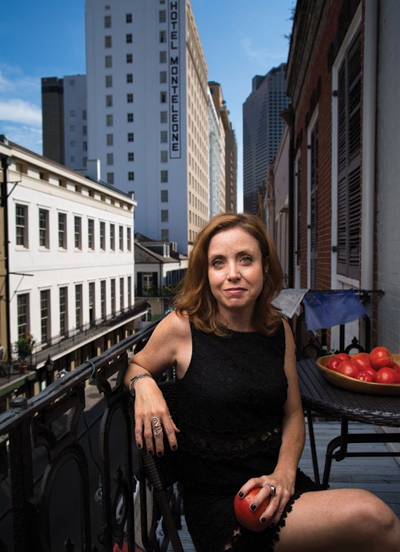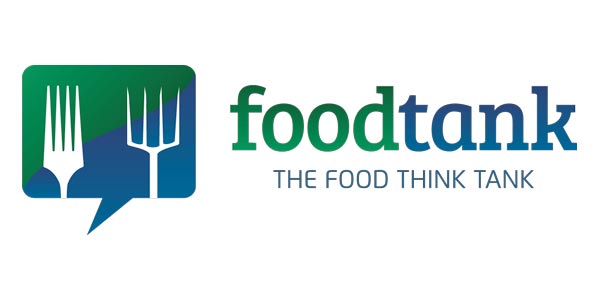 Interview with Danielle Nierenberg, founder of Food Tank
Interview with Danielle Nierenberg, founder of Food Tank
What’s Food Tank and what are its activities?
Food Tank highlights stories of hope and success in the food system around the world.
Our Vision: Building a global community for safe, healthy, nourished eaters.
Our Values: Educate. Inspire. Advocate. Change.
Our Mission: Food Tank is focused on building a global community for safe, healthy, nourished eaters. We spotlight environmentally, socially, and economically sustainable ways of alleviating hunger, obesity, and poverty and create networks of people, organizations, and content to push for food system change.
What’s the worst problem in our food production system?
There’s no single problem in the food system.
Our food system is broken. Some people don’t have enough food, while others are eating too much. There’s only one way to fix this problem – and it starts with you and me.
We need solutions and environmentally sustainable ways of alleviating hunger, obesity, and poverty by creating a network of connections and information for all of us to consume and share. Food Tank is for farmers and producers, policy makers and government leaders, researchers and scientists, academics and journalists, and the funding and donor communities to collaborate on providing sustainable solutions for our most pressing environmental and social problems.
As much as we need new thinking on global food system issues, we also need new doing. Around the world, people and organizations have developed innovative, on-the-ground solutions to the most pressing issues in food and agriculture. We hope to bridge the domestic and global food issues by highlighting how hunger, obesity, climate change, unemployment, and other problems can be solved by more research and investment in sustainable agriculture.
We feature innovative ideas that are already working on the ground, in cities, in kitchens, in fields and in laboratories. These innovations need more attention, more research, and ultimately more funding to be replicated and scaled-up. We all need to work together to find solutions that nourish ourselves and protect the planet.
Changing that system could also mean an enormous set of new business opportunities, do you agree with this statement?
Yes, the food system provides opportunities for entrepreneurs to come up with innovative solutions to some of the most pressing problems including hunger, obesity, food loss and food waste, climate change, lack of access to healthy foods, lack of affordable food, conflict, migration, etc. Farmers are business women and men who need to be able to make money from the products they grown and sell, whether they’re organic, sustainable, or conventional. It doesn’t matter how much organic food we grow or eat, if farmers aren’t making money. We need to find ways to help farmers do their jobs better and we need to find ways to account for the true cost of food—both the positive and negative externalities.
The world population mostly lives in overcrowded cities, do you think that the urban enviroment can really fit a new idea of producing food?
While cities will never replace rural areas completely, they can be centers of food production providing access to affordable nutritious food for wealthy and poor eaters alike. And urban agriculture has side benefits, in addition to food production, including creating green spaces, providing more jobs, bringing communities together, and even helping mitigate climate change and conflict.
New foods –or Novel Foods- such as edible insects are gaining interest and investments, are we at the beginning of a food revolution or is this just another temporary trend?
I think that novel foods such as more insect based products or plant-based proteins can play an important role in making a more sustainable food system, but we don’t want to just create more snack foods or fake meat. We want a food system that puts culture back in agriculture. We need to recognize the multiple roles farmers play as innovators and entrepreneurs and stewards of the land who deserve to be recognized for the ecosystem services they provide that have widespread benefits. Novel foods are just part of the tool kit for creating a more sustainable food system, but they are not a silver bullet for alleviating hunger.
It seems that eating meat will soon be considered a crime. That’s a joke, but don’t you think that the opposition “metat VS rest of the food” is a false problem?
Eating meat doesn’t have to be bad for human health or the environment. We need to rethink the meat we eat and eat less of it. Pasture raised and organic mixed crop livestock systems can provide more nutritious and healthier animal products while providing a natural source of manure and helping sequester carbon in soils. And while people in rich countries would benefit from eating fewer animal products, people in developing countries could benefit from adding more animal protein, especially eggs, to their diets.





